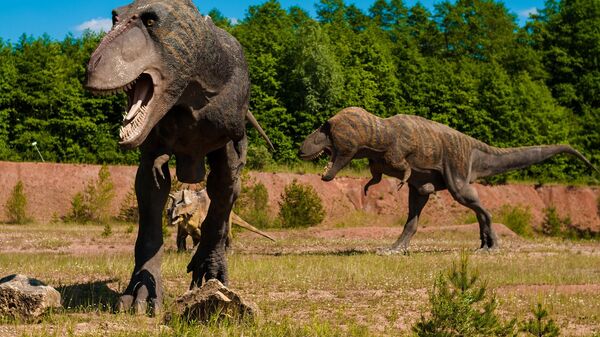An intriguing discovery made during the study of a couple of dinosaur skulls unearthed in the United States may have, if confirmed, a profound impact on the scientific understanding of DNA, the Daily Express reports.
According to the newspaper, one of the researchers involved in the find, Mary Schweitzer, claimed that the skulls, which belonged to duck-billed creatures called Hypacrosaurus that lived some 75 million years ago, contained "a number of extremely well preserved cells" which "could be DNA", even though "it is widely accepted that DNA can take around 5.3 million years to become completely unreadable".
"This immunological test supports the presence of remnants of original cartilaginous proteins in this dinosaur", she said, referring to her and her colleagues testing the skulls with cells from emus.
Schweitzer previously told National Geographic, however, that she is "not even willing to call it DNA" due to being cautious and not wanting to "overstate the results".
"There is something in these cells that is chemically consistent with and responds like DNA", she remarked.
The discovery in question was praised by Alida Bailleul of the from the Chinese Academy of Sciences who said that her "heart almost stopped beating" when considering the possible ramifications of this find.
"These new exciting results add to growing evidence that cells and some of their biomolecules can persist in deep-time", she explained. "They suggest DNA can preserve for tens of millions of years, and we hope that this study will encourage scientists working on ancient DNA to push current limits and to use new methodology in order to reveal all the unknown molecular secrets that ancient tissues have."
As the newspaper points out, however, Schweitzer's work was criticized by some scientists due to the fact that her results apparently haven't been replicated by other teams so far.
"It's problematic that no other lab has been able to replicate Mary Schweitzer's work", said Jakob Vinther of University of Bristol. "The idiom that exceptional claims require exceptional evidence remains."



